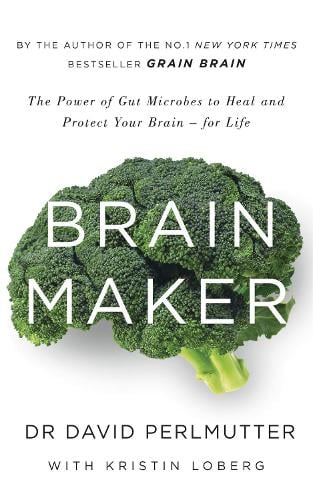The book is described as an informative and eye-opening read that cites numerous studies on the gut-brain connection. Readers find it impressive and highly recommend it.
Readers on Barnes & Noble find Brain Maker to be an incredibly informative and eye-opening book. They appreciate the numerous studies cited and the author's ability to present complex information in an accessible way. The book is seen as a valuable resource for anyone looking to understand the profound impact of gut health on brain function. The practical advice and insights provided are highly praised, making it a must-read for those interested in health and wellness.
Quick quotes
What a fantastic read on the health of the microbiome! Informative, eye-opening, and cites a number of studies.
Quite an impressive work that sheds light on the crucial role of gut bacteria in brain health.
The practical advice and insights provided are highly valuable and actionable.
